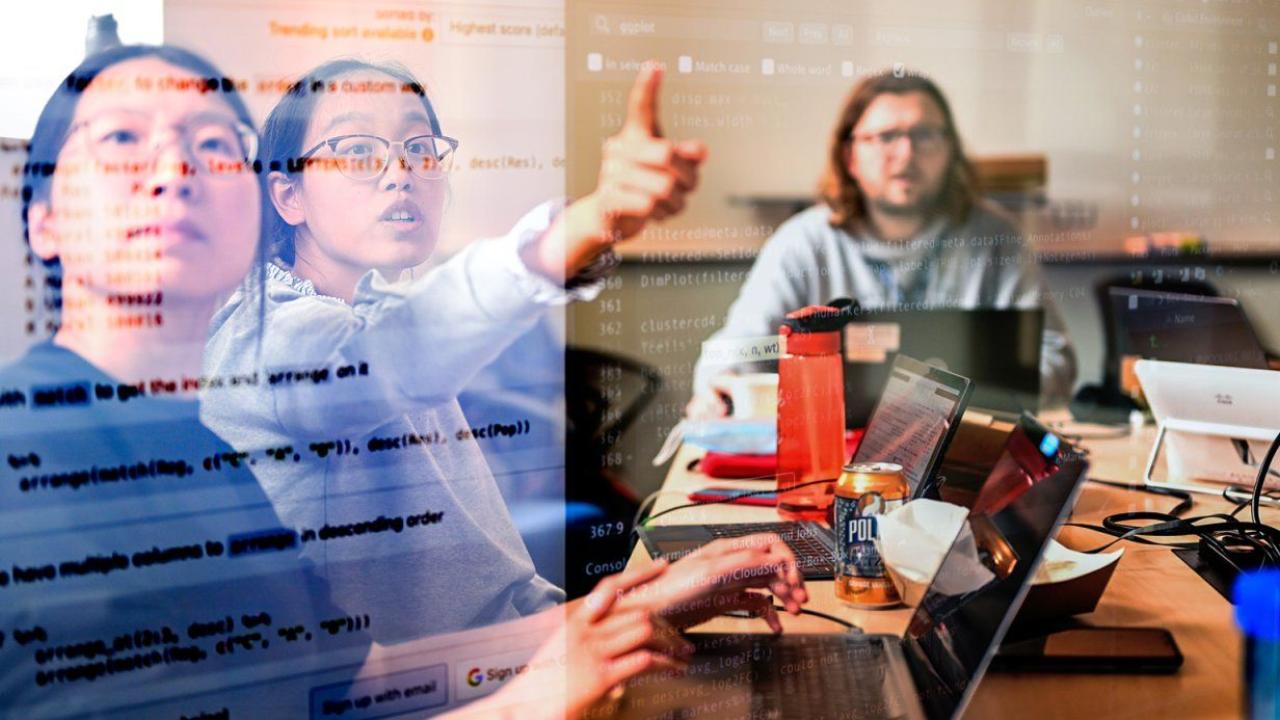
Bioscience discovery is not a solo pursuit. Confronted with mountains of genomic data, it takes a team of researchers with complementary expertise to glean gemlike insights.
On a sunny Friday, teams of aspiring young scientists gathered in the Clinical Sciences building at Parnassus Heights, looking for treasure in a trillion data points about cancer.
They were competing in a hackathon put on by UC San Francisco’s CoLabs Initiative and the Bakar ImmunoX Initiative, two programs that foster collaborative working across disciplines. Each team was given the same data and two days to make something of it before presenting their ideas to the judges and an audience of their peers.
We asked these students, ‘If you want to understand something new about cancer, what are you going to look for in this data?’
MAX KRUMMEL, PHD
“We asked these students, ‘If you want to understand something new about cancer, what are you going to look for in this data?’” said Max Krummel, PhD, chair of ImmunoX. “This was a chance for them to pursue their own questions, with the potential to find some exciting leads.”
CoLabs has been hosting annual hackathons since 2019. The events draw participants with diverse perspectives, including clinical fellows, postdoctoral researchers, staff scientists and PhD students. The 2020 hackathon, held virtually, gave participants the chance to work with novel information related to COVID-19 from the UCSF COMET study, which tracked patients hospitalized at UCSF and Zuckerberg San Francisco General Hospital and Trauma Center.
This year’s teams got to look at some fresh data, generated by Krummel and colleagues as part of a cross-disciplinary study classifying hundreds of patient-donated tumors by their immune signatures.